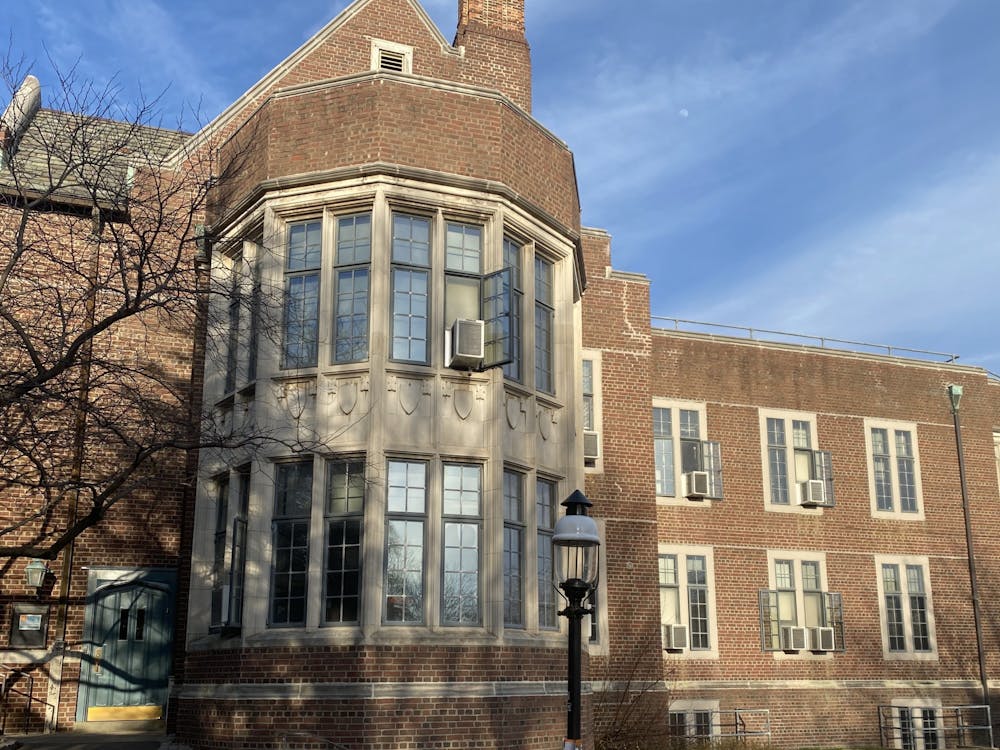In July, the University informed students that the majority of those who test positive for COVID-19 would need to isolate in their dorms, as opposed to in designated isolation housing. But one month into the fall semester, some students — particularly those who have had roommates test positive — expressed confusion and concern about the policy.
Responding to some of these concerns, University Spokesperson Michael Hotchkiss said that the University has “encouraged students to plan ahead for how to respond if they or a roommate tests positive for COVID.”
Nina Noble ’26 was forced to vacate her room for six days during the first week of classes after her roommate tested positive for COVID-19. Uncomfortable sleeping in the same room as her ill roommate, Noble said she resorted to sleeping in her hall’s common room for the first night. After a day of back-and-forth — during which she recalled administrators suggested to her that she sleep with a friend, returning home, or booking a hotel room — the University secured Noble an empty single in Scully Hall.
Noble said that she felt uncomfortable with the situation.
“There needs to be a designated place for [relocated] students [to stay] rather than having to couch-hop and asking to sleep [in others’ rooms],” Noble said in an interview with The Daily Princetonian.
The University says that having such a “designated place” is not feasible.
According to Hotchkiss, “[e]ach request for isolation housing is evaluated individually within the context of the limited capacity for isolation housing on campus this fall.”
While the University recommends that roommates plan their response to possible positive tests in advance, Noble said that as a first-year, she didn’t have the time to make alternate arrangements in the midst of core orientation events and small group experiences.

Having only been on campus for a few days, Noble said she did not feel comfortable enough to sleep with any of her new friends. Returning home for the isolation period was also unfeasible, as Noble is from North Carolina.
Another student, Jenia Marquez ’25, said she felt the University was “no longer trying to serve students” after having to sleep in her common room when her roommate tested positive.
“I felt like I was in a liminal space between being sick and healthy,” Marquez commented. “[It] felt like I couldn’t go to dining halls or common spaces freely for fear of endangering other people since I was constantly getting exposed but also couldn’t stay in my dorm for fear of endangering myself.”
Hotchkiss emphasized that students were encouraged to prepare for such scenarios, maintaining that “students whose roommate tests positive for COVID have a range of options when deciding where to stay during their roommate’s isolation — options best considered as they put together a plan prior to any positive test.”

These options, according to a campus-wide message from community health administrators, include “stay[ing] in the room with the [positive] roommate,” “stay[ing] in a common room,” “stay[ing] with a friend,” or “go[ing] home or to a place off-campus.”
For some students, however, some of these options are inherently out of reach, particularly those whose permanent residences are not near the campus or those who cannot afford to rent a room nearby.
However, Hotchkiss said that “if a student has difficulty implementing their plan, [the University will] work with each student one-on-one to ensure they understand their options.”
Marquez said she felt like the University “didn’t give us any option.” Citing the language in COVID-19 information emails, she said she had felt that “it seemed like [we] needed an exceptional case to get isolation housing.”
The University isolation website cites “compelling reasons for staying separate from your roommate” as a reason for contacting the University for alternative housing options.
Sidney Singer is an assistant news editor from Nova Scotia, Canada, who has covered a variety of news on and around campus. She can be reached at sidneysinger@princeton.edu, on Twitter @sidneylsinger, or on Instagram @sidneysinger.
Cole Strupp is a news contributor from Asbury Park, N.J. He can be reached at colestrupp@princeton.edu or on Instagram @colestrupp.








